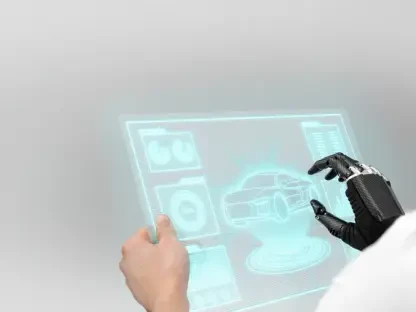Imagine a development team spread across continents, each member working on a complex Qt-based application for automotive interfaces, struggling to maintain consistency in their environments due to varying local setups. This scenario is all too common in modern software development, where cross-platform projects demand uniformity to avoid costly errors in production. The introduction of Docker support in Qt Creator 18 Beta offers a promising solution to such challenges, streamlining workflows for Qt and C++ developers by enabling containerized environments directly within the IDE. This review delves into the transformative potential of this integration, exploring its features, performance, and strategic alignment with industry needs.
Unpacking the Core of Qt Creator 18 Beta
Qt Creator 18 Beta emerges as a pivotal update for developers immersed in the Qt and C++ ecosystems, particularly those navigating the complexities of cross-platform application development. Released amid a surge in DevOps and cloud-native practices, this version of the IDE responds to the pressing need for consistent, reproducible environments across diverse project stages. The spotlight feature, Docker integration, positions the tool as a forward-thinking solution for teams aiming to minimize setup discrepancies.
Beyond containerization, the beta release brings a suite of enhancements tailored to boost productivity and adaptability. With industries like automotive and medical devices increasingly relying on Qt for robust user interfaces, the timing of these updates aligns perfectly with the demand for tools that can handle intricate, hardware-specific projects. This section sets the stage for a deeper look into how these capabilities reshape development practices.
Diving into Docker Integration Features
Streamlining Workflows with Containerized Environments
Docker support in Qt Creator 18 Beta allows developers to launch containers seamlessly within the IDE, facilitating testing and debugging without the need for external tools. This capability ensures isolated environments that mirror production settings, significantly cutting down on configuration conflicts that often plague distributed teams. The ability to replicate setups across development, staging, and production phases stands as a critical advantage for maintaining project integrity.
The impact of such containerization is particularly evident in reducing setup times, a persistent bottleneck in multi-platform projects. Developers can now focus on coding rather than wrestling with environment mismatches, a benefit that early testers have highlighted as a major workflow enhancer. This feature addresses a core pain point, ensuring that applications behave consistently regardless of the underlying system.
Enhanced Configuration and Diagnostic Tools
Complementing the container support, Qt Creator 18 Beta introduces refined configuration management, automating dependency handling and synchronizing environment variables with ease. These improvements minimize manual intervention, allowing for smoother transitions between different project phases. Such automation is a boon for teams managing complex dependencies inherent in Qt-based applications.
Additionally, the beta offers advanced diagnostics for troubleshooting container issues, providing actionable insights when errors arise. Feedback from initial users suggests that these tools accelerate iteration cycles by quickly pinpointing and resolving configuration hiccups. This focus on usability ensures that even less experienced developers can leverage container technology without steep learning curves.
Broader Enhancements in the Beta Release
Boosting Productivity with Code Tools
Alongside Docker integration, Qt Creator 18 Beta refines code completion and refactoring functionalities, sharpening the tools developers rely on daily. These updates streamline the coding process, particularly for intricate projects where precision is paramount. When paired with containerized environments, these enhancements enable faster, more accurate development cycles.
The improved code assistance proves especially valuable in large-scale applications, where maintaining clean, efficient codebases is a constant challenge. By reducing the cognitive load on developers, these tools allow more focus on innovation rather than syntax struggles. This synergy between coding aids and container support marks a significant leap in developer experience.
Leveraging Qt 6.8 LTS Capabilities
Integration with Qt 6.8 LTS libraries further enriches the beta, bringing features like multi-view rendering and enhanced Wayland support to the forefront. These advancements empower developers to craft immersive, high-performance applications for both desktop and mobile platforms. The seamless alignment with the latest Qt frameworks ensures that projects remain cutting-edge.
For industries pushing the boundaries of user interface design, such as consumer electronics, these library updates offer new creative possibilities. Developers can now experiment with advanced rendering techniques within a stable, containerized setup, ensuring consistency across testing scenarios. This combination of modern libraries and Docker support amplifies the IDE’s versatility.
Aligning with Industry Shifts and Market Position
The rise of cloud-native development and remote collaboration tools shapes the backdrop against which Qt Creator 18 Beta is evaluated. Containerization has become a cornerstone of modern DevOps, and this IDE’s adoption of Docker reflects a keen awareness of industry demands for efficiency and scalability. Such alignment positions the tool as a competitive player in a landscape dominated by versatile IDEs like Visual Studio Code.
Particularly in specialized niches where Qt’s strengths in cross-platform development are critical, the beta release carves out a distinct advantage. It caters to the growing need for hybrid work models by ensuring teams can operate in synchronized environments, regardless of location. This strategic focus underscores the IDE’s relevance in a rapidly evolving tech ecosystem.
Practical Impacts Across Sectors
In real-world scenarios, Docker integration within Qt Creator 18 Beta proves transformative for industries like automotive and medical devices, where precision and reliability are non-negotiable. Embedded systems developers, often constrained by hardware-specific requirements, benefit immensely from testing in production-like containerized setups. This capability reduces the risk of deployment failures in critical applications.
Consumer electronics projects also gain from the ability to iterate quickly within consistent environments, ensuring that user interfaces meet stringent design standards. Early feedback from beta testers highlights how these features simplify debugging in complex, multi-component systems. Such practical applications demonstrate the tangible value of the IDE’s latest updates.
Navigating Challenges in the Beta Phase
Despite its strengths, Qt Creator 18 Beta is not without hurdles, as community forums report minor bugs in the Docker integration that occasionally disrupt workflows. These issues, while not deal-breakers, underscore the importance of thorough testing before adopting the IDE for mission-critical projects. The development team’s active engagement with user feedback suggests that refinements are on the horizon.
Full adoption in production environments remains a cautious step, given the beta status and potential for unforeseen glitches. Developers are advised to balance the benefits of early access to innovative features with the need for stability in high-stakes scenarios. This measured approach ensures that the tool’s potential is harnessed without compromising project outcomes.
Looking Ahead to Future Developments
The trajectory for Qt Creator following this beta release points toward significant enhancements in the full version of 18, expected to address current limitations based on community input. Future iterations may introduce even deeper container support, potentially integrating with orchestration tools for larger-scale deployments. Such advancements could redefine cross-platform development practices.
Over the next few years, from 2025 onward, the focus might shift to optimizing performance for edge computing and microservices, areas where Qt’s capabilities are increasingly vital. The long-term impact of these updates could solidify the IDE’s role in high-stakes industries, ensuring it remains a go-to choice for developers. Anticipation for these developments fuels optimism among the user base.
Final Thoughts on the Beta’s Legacy
Reflecting on the evaluation, Qt Creator 18 Beta stands as a bold step forward with its Docker integration and complementary enhancements, addressing key pain points in cross-platform development. Its alignment with industry trends like cloud-native practices marks it as a tool of significant potential, even as minor bugs temper immediate full-scale adoption. The beta phase provides invaluable insights into how containerization can reshape workflows for Qt and C++ developers.
For those considering its integration, the next step involves cautious experimentation in non-critical projects to validate stability and performance. Teams are encouraged to contribute feedback to the development community, ensuring that subsequent releases address real-world needs. Looking back, this beta lays a robust foundation for future innovations, urging developers to stay engaged with upcoming updates to fully leverage the evolving capabilities of this IDE.









